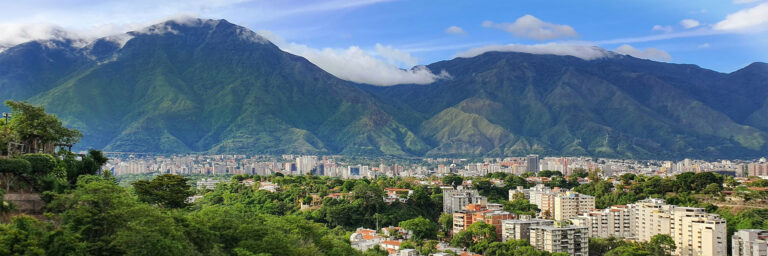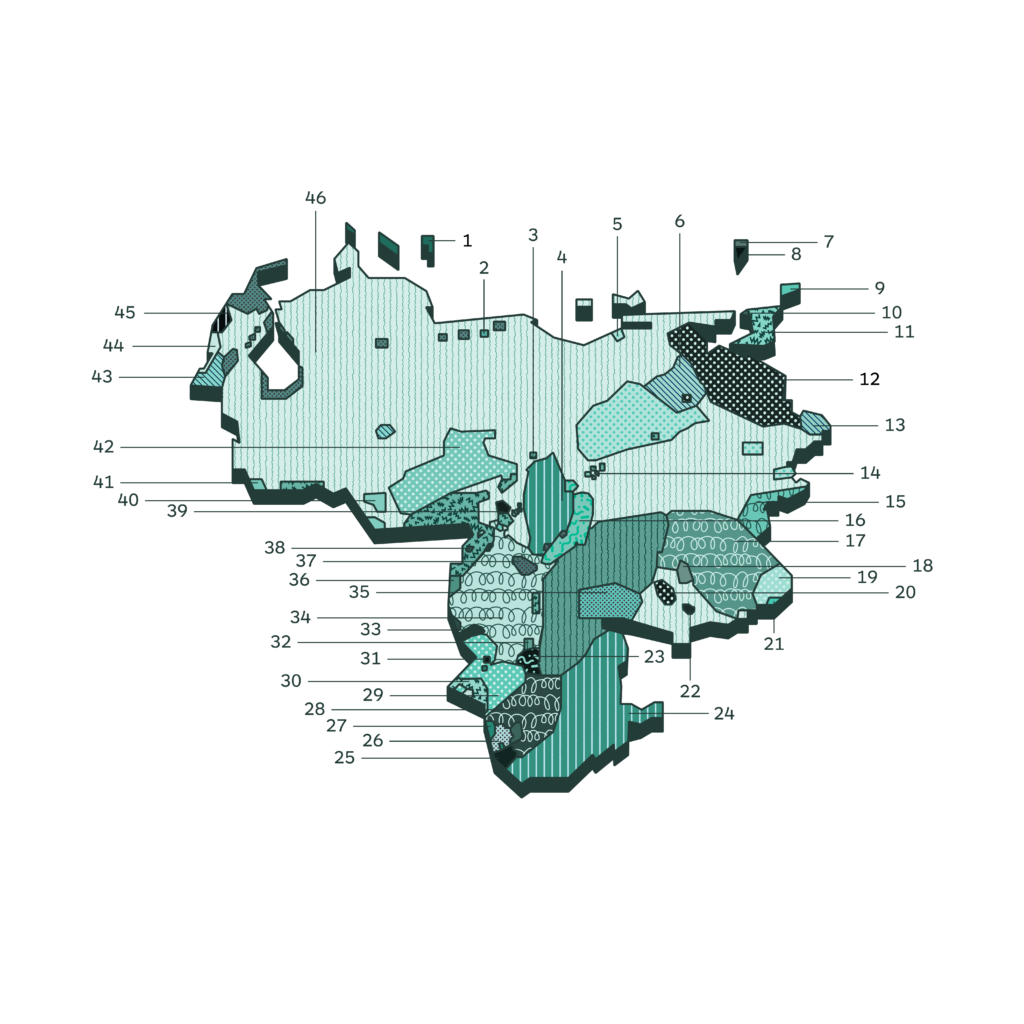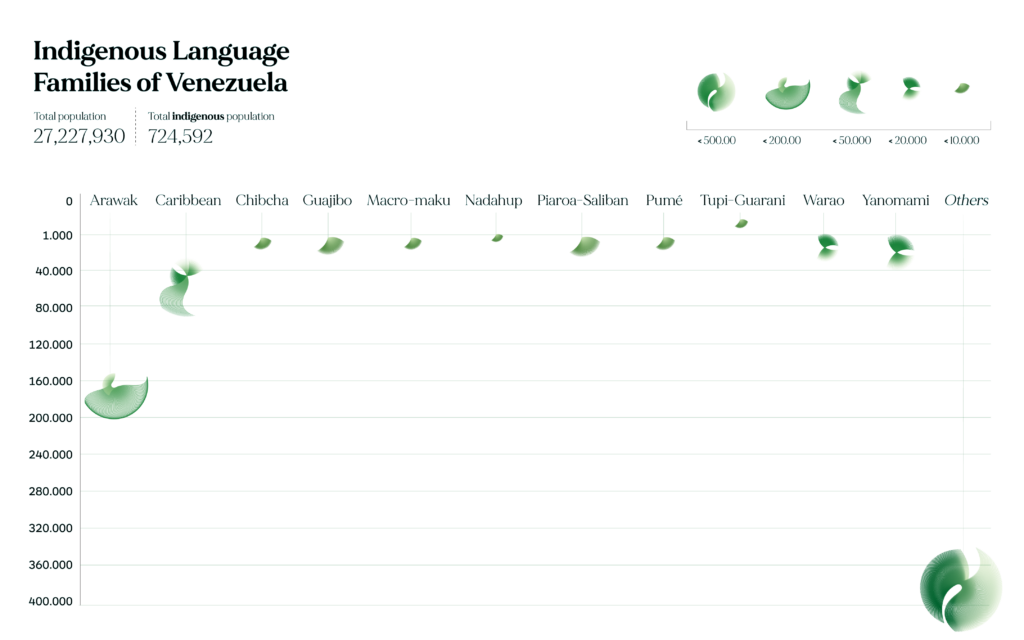South America
To which language should you translate to localize in Venezuela?
What we know from our community
“The language spoken in Venezuela is Spanish. Our dialect is derived from Andalusia and the Canary Islands, with influences from Indigenous languages of South America and the Caribbean, African languages, and more recently, Italian and English. So, we are understood in both Spain and all Latin America but some may hear from us words like ‘arepa’, ‘casabe’, ‘chinchorro’ (Native), ‘bemba’, ‘ñame’, ‘cambur’ (African), ‘birra’, ‘chao’, ‘pasticho’ (Italian), and ‘chamo’, ‘cachifa’, ‘cotufa’ (from English).
There are several regional variations, including but not limited to Los Andes, Zulia, Lara, Los Llanos, Margarita and the Central zone, which is the standard form of Venezuelan Spanish. Venezuelans are known for pronouncing all sounds /θ/ like /s/ and for our particular way of aspiring the letter ‘s’. We also often shorten words like ‘pa’ for ‘para’ when speaking, we drop some vowels like ‘pescao’ for ‘pescado’ and we use the diminutive ‘-ico’ instead of the more popular ‘-ito’, just like other Caribbean countries.
So, when localizing to Venezuelan Spanish, as with any other translation, in addition to mastering the local vocabulary, it is important to know certain aspects such as the target audience, text type, geographical region, etc. That way, we can know, among other things, whether to use ‘tú’ or ‘usted’, since ‘vos’ is almost exclusively used in Zulia. What we all don’t use at all is ‘vosotros’ for the plural form of the second person, but ‘ustedes'”.
LANGUAGE INSIGHT
Official language
Spanish
What the top 150 best localized websites in the world do in Venezuela
(Top 150 websites listed in the Global by Design ranking – published annually by Byte Level Research, this report provides a list of globally localized websites, showcasing best practices and emerging trends in their globalization)
- 62/150 localize by translating into Spanish.
- 1/150 localizes by translating into Venezuelan Sign Language.
-
3M
-
ABB
-
Accenture
-
Adidas
-
Adobe
-
Airbnb
-
Aldi
-
Amazon
-
American Airlines
-
American Express
-
Apple
-
Audi
-
Autodesk
-
Avis
-
Bayer
-
BMW
-
Booking.com
-
Bosch
-
British Airways
-
Bumble
-
Burberry
-
BYD
-
Canon
-
Capgemini
-
Cartier
-
Caterpillar
-
Chevrolet
-
Cisco Systems
-
Citibank
-
Coca-Cola
-
Costco
-
Dell
-
Deloitte
-
Delta
-
DHL
-
Disney+
-
Dyson
-
eBay
-
Eli Lilly
-
Emirates
-
Ernst & Young
-
Facebook
-
FedEx
-
Ford
-
Four Seasons
-
Fujifilm
-
GE
-
Gillette
-
GoDaddy
-
Google
-
Gucci
-
Haier
-
Heineken
-
Hermès
-
Hertz
-
Hilton
-
Hisense
-
Hitachi
-
Honda
-
Hotels.com
-
HP
-
HP Enterprise
-
HSBC
-
Huawei
-
Hyatt
-
Hyundai
-
IBM
-
IKEA
-
Intel
-
InterContinental Hotels
-
J&J
-
Jack Daniel's
-
Jehovah’s Witnesses
-
John Deere
-
Kellogg's
-
Kia
-
KPMG
-
L'Oréal
-
Land Rover
-
LEGO
-
Lenovo
-
Lexus
-
LG
-
Louis Vuitton
-
Lululemon
-
LUSH
-
Marriott
-
MasterCard
-
McDonald's
-
Mercedes-Benz
-
Merck
-
Microsoft
-
Mitsubishi Electric
-
Nestlé
-
Netflix
-
Nike
-
Nikon
-
Nintendo
-
Nio
-
Nissan
-
NIVEA
-
Oracle
-
Pampers
-
Panasonic
-
PayPal
-
Pepsi
-
Pfizer
-
Philips
-
Pitney Bowes
-
Porsche
-
Procter & Gamble
-
PWC
-
Revolut
-
Rolex
-
Royal Caribbean
-
Salesforce
-
Samsung
-
Sanofi
-
SAP
-
Sephora
-
Shopify
-
Siemens
-
Sony
-
Spotify
-
Starbucks
-
Steelcase
-
Stripe
-
Subaru
-
Tesla
-
The Church of Jesus Christ of Latter-day Saints
-
Tiffany
-
Tinder
-
Toshiba
-
Toyota
-
TripAdvisor
-
Uber
-
United Airlines
-
UPS
-
Visa
-
Volkswagen
-
Volvo Cars
-
Vrbo
-
Walmart
-
Western Union
-
Wikipedia
-
Wise
-
WordPress
-
Workday
-
Xerox
-
Xiaomi (Mi)
-
Zara
-
Zoom
If you need others information, below you can find a selection of economic/social/cultural data
Overview
Language
Official language
Spanish
T-index
1.6%
T-Index ranks countries according to their potential for online sales.
Other languages
The Caracas dialect, which is common in the capital city of Caracas. This dialect is viewed as the standard Spanish of the country and is used by the media. Other dialects are Lara, Zulian, Margaritan and Andean.
Spanish is the most popularly spoken language in Venezuela, although approximately 40 different languages are spoken throughout the country. Venezuela’s 1999 Constitution recognized Spanish and the nation’s indigenous languages as official languages. Most of the languages spoken in Venezuela are still unclassified. Venezuela’s ethnic population includes Mestizos, who make up about 51.6% of the total inhabitants and 43.6% of the population is of European descent. 3.6% of Venezuelans have African ancestry, while 3.2% are Amerindians.
Chinese (400,000), Portuguese (254,000) and Italian (200,000), are the most spoken languages in Venezuela after the official language of Spanish. Wayuu is the most spoken indigenous language with 170,000 speakers.
English
Moderate proficiency (EF) – 51 of 123 countries/regions in the world- 7/20 position in Latin America.
Demography
Capital: Caracas
Currency: Bolívar venezuelano
Population: 28.40M
Population density: 32/km2
Economy
GDP: 119.8 billion USD (2024)
GDP per capita: 4,217.6 USD (2024)
Exports: $7.63 billion (2023)
Statistics
Internet users: 61.6% penetration, 17.6 million
Unemployment rate: 5.3% (2022)
Urbanisation: 89% (2024)
Literacy: 98% (2022)
Conventions
Numbering system
Arabic numerals with comma as decimal separator.
Date format: dd – mm – yyyy
Time: 24h time system
Country code: 0058
Language data sources: Worldatlas/Britannica//EF/Wikipedia; Demography data sources: IMF/Worldometers; Conventions data source: Wikipedia; Economy data sources: WTO/OEC/CIA/Esomar/Datareportal; Statistics data sources: Datareportal/WorldBank/UN/UNESCO/CEIC/IMF/Culturalatlas/Commisceoglobal
Facts and data
Economy
Imports
$9.98 billion (2023). Refined Petroleum ($666M), Telephones ($444M), Soybean Meal ($326M), Corn ($273M), and Cars ($253M) importing mostly from China ($3.45B), United States ($2.43B), Brazil ($1.15B), Colombia ($673M), and Turkey ($366M).
Financial inclusion factors (over 15 years of age)
• 86.4% have an account with a financial institution
• 16.1% have a credit card
• 33.7% have a mobile money account
• 15.9% make online purchases
Ease of doing business
Ease of conducting business is below average (rated 30.2 out of 100) ranked 32nd out of 32 Latin American countries ranked 188th out of 190 countries worldwide (2022, World Bank).
Exports
$7.63 billion (2023). Crude Petroleum ($4.05B), Petroleum Coke ($552M), Scrap Iron ($421M), Acyclic alcohol derivatives (halogenated, sulphonated, nitrated) ($418M), and Nitrogenous Fertilizers ($280M), exporting mostly to United States ($3.81B), China ($739M), Spain ($670M), Brazil ($468M), and Turkey ($364M).
Main local online stores
Linio, Zapacos, Tuticket.com, TodoClon.com, Traetelo.com, EPA, Macro, Zelvas.
Economic freedom
‘Repressed’ (rated 27.6 out of 100) ranked 31st out of 32 Latin American countries, and ranked 174th out of 184 countries worldwide (2025, Heritage Foundation and Wall Street Journal).
Economy data sources: WTO/OEC/CIA/Esomar/Datareportal

Orgullo, Crisis, Crypto
What's Imminent In Venezuela
Each month, we spotlight a country with its own unique characteristics. Using analytical lens, we explore What’s Imminent in the linguistic, cultural, and economic tapestry to unveil its true character. Join us in this insightful exploration to understand the distinctive dynamics of each region.
Read it now!Service Imports (2018)
Service Exports (2018)
Source: OEC
Historical Data Trade Imports
The following section uses historical trade data imports from partners of Venezuela.
Historical Data Trade Exports
The following section uses historical trade data exports from partners of Venezuela.
Source: OEC
Trade balance of goods from 2014 to 2024
Source: Statista
The Top Export Opportunities for Venezuela by Relatedness
Relatedness measures the distance between a country's current exports and each product by showing only products that Venezuela is not specialized in.
Venezuela's Most Complex Exports
The Product Complexity Index (PCI) measures the knowledge intensity of a product by considering the knowledge intensity of its exporters.
Source: OEC
Foreign direct investment, net inflows (% of GDP)
Source: WorldBank

T-index
Reach most of the online purchasing power
T-Index ranks countries according to their potential for online sales. It estimates the market share of each country in relation to global e-commerce.
Try it nowMedia
Media language
Spanish
Information channels
Political polarization is mirrored in the media, a process that began under the late president Hugo Chavez, whose critics accused him of persecuting hostile media operators during his 1999–2013 rule. Opponents of President Nicolas Maduro say he has continued these tactics, which have also been condemned by media freedom groups. Anti-government and exiled media have emerged online. Many journalists have fled Venezuela because of threats and physical dangers, says Reporters Without Borders (RSF). Print media are often affected by “strange newsprint shortages”, RSF says. Some newspapers have reported being forced to stop printing after being denied hard currency to buy newsprint and ink. The government’s main TV mouthpiece is Venezolana de Television (VTV), which carries Mr. Maduro’s speeches and reports on the activities of his ministers. Its coverage routinely ignores the opposition. Telecoms regulators have barred many of VTV’s competitors from cable networks. Globovision, a one-time critical channel, changed its editorial line after it was sold to government-linked owners in 2013. Venezuela is the main shareholder in Telesur, a Caracas-based pan-American TV. Governments with a stake in the venture are all left-wing or left of center. The government and its opponents use social media as a battleground. Officials and the military operate an array of interlocking Twitter accounts, as does the opposition movement. During street violence in early 2019, NetBlocks, a digital rights organization, documented disruptions in access to Twitter, Facebook, and the video streaming app Periscope.
The press
El Nacional – online only, Caracas
Ultimas Noticias – Caracas-based daily
El Universal – Caracas-based daily
El Carabobeno – online only, Valencia-based
Efecto Cocuyo – online, independent news outlet
El Estímulo – online, independent news outlet
El Pitazo – online, independent news outlet
El Diario – online, independent news outlet
Television
Venezolana de Television – state-run
Televen – private
Venevision – private
Globovision – private
Telesur – Caracas-based pan-American TV
Radio
Radio Fe y Alegría – independent radio network
Unión Radio – independent news radio
Radio Nacional de Venezuela – state-run
Union Radio Noticias – commercial news network
News agency
Agencia Venezolana de Noticias (AVN) – state-run, pages in English
LaPatilla – news website
Media data source: BBC
Internet Data
Internet users
61.6% penetration, 17.6 million
Share of web traffic by device
43.01% mobile phones, 55.64% computers (laptops and desktops), 1.31% tablet devices, others 0.03%.
Median speed of mobile Internet connection
25.42 Mbps
Median speed of fixed Internet connection
92.09 Mbps
Mobile connection as a percentage of total population: 76.3%
Percentage of mobile connections that are broadband (3G-5G): 99.8%
Most popular web search engines
Google (91.96%), Bing (6.38%), Yahoo! (0.96%), DuckDuckGo (0.34%), Yandex (0.30%), Ecosia (0.03%); Baidu (0.01%), other (0.02%).
Most used social media
Facebook (34.48%), Instagram (30.43%), YouTube (25.27%), Pinterest (5.69%), X (2.65%), Tumblr (0.75%), reddit (0.58%), other (0.15%).
Internet data sources: Datareportal/Statcounter
Social statistics
Life expectancy
73 yrs (2023)
Gender
While it remains true that Latin-American men often discriminate against women at work (machismo), in Venezuela, this is changing. Every day, women are demonstrating (in real terms) they can be as competitive as men at any position, if not more.
Corruption perceptions Index
Venezuela scored 10 out of 100, ranked 178 out of 180 countries worldwide.
Current health expenditure
4.55% of GDP
Religion
In reference to religion, Venezuelans are mainly Catholic, some Jewish, and some Anglican. Religion is not a sensitive issue or topic. All religions are respected.
CO2 emissions
2.99 metric tons per capita
World Happiness Index
Venezuela ranked 82 out of 147 countries, with a score of 5.683.
Current education expenditure
97.1% of total expenditure in public institutions.
Social statistics sources: WorldBank/UN/UNESCO/CEIC/IMF/Britannica
The Data Factbook is a work in progress project. Our community is helping us to fill it up always with new and updated data. Your contribution is precious. If you want to help us, please write your advices at imminent@translated.com
Country Curiosities
Venezuela has been an oil producer since 1914 and with 300.9 billion barrels, it has the largest oil reserves of any country in the world. Venezuela’s gas prices are some of the cheapest in the world because of their oil reserves. Anyway, Venezuela grapples with a stark economic paradox. While abundant in resources, a complex mix of factors, including political and economic challenges, has led to high poverty rates.
Additionally…
- Venezuela is home to the highest or tallest uninterrupted waterfall in the world, Salto Angel, or Kerepakupai merú which means ‘waterfall of the deepest place’.
- The name of Venezuela means little Venice, because Vespucci happened to think that the houses built on Lake Maracaibo have resemblance with Venice in Italy.
- Venezuela gave birth to Simón Bolívar, who led the fight for independence from Spanish rule in several South American countries.
- The official name of Venezuela is the Bolivarian Republic of Venezuela.
- The people of Venezuela speak more than 35 different languages.
- The majority of the Venezuelan population (between 65% and 90%) identify as mestizos– or mixed–ethnic ancestry.
- Venezuela is one of the 17 megadiverse countries.
- In 1830, the country broke away from Colombia to become an independent republic.
- The Guri Dam, one of the world’s largest, generates all the hydroelectric power the country relies upon.
- Coke Zero was banned in Venezuela in 2009.
Languages Research
Languages spoken in Venezuela

Legend
-
1-Negenands and Papiamentu De Curaçao
-
2-Alemán Coloniero DeutschSchwarzwald
-
3-Guajibo
-
4-Enepa Panare
-
5-Kanña
-
6-Chaima
-
7-Creole Français Grenadien
-
8-Grenadian
-
9-Tobagonian Creole English
-
10-Creole Français Trinidadien
-
11-Trinidadian Creole English
-
12-Warao
-
13-Arawak
-
14-Senema
-
15-Akawayo
-
16-Yuwana
-
17-Penom
-
18-Ninam
-
19-Macushi
-
20-Arutani and Sapé
-
21-Sikiana
-
22-Uruak
-
23-Mako
-
24-Yanomano
-
25-Nhengatu
-
26-Bare
-
27-Yeral
-
28-Guarequena
-
29-Baniva
-
30-Kurripako
-
31-Yukano
-
32-Yekuana
-
33-Puinave
-
34-Piaroa
-
35-Sanuma
-
36-Sáliba
-
37-Yabarana
-
38-Piapoko
-
39-Mapoyo
-
40-Kuiva
-
41-Tunebo Central
-
42-Yaruro
-
43-Motilon
-
44-Yukpa
-
45-Japreria
-
46-Espanõl Venezolano

The geographical distribution of languages that you will find in the maps published in this section is a work in progress. Our community is helping us to fill it up with always new and updated data. Your contribution is precious. If you want to help us, please write to imminent.factbook@translated.com
Photo credit: Jorge Salvador, Unsplash


